Zipcar. Car2Go. Getaround. Modo. Throughout the Northwest, car-sharing services are taking off. Residents in major Northwest cities who are looking to live a “car-lite” lifestyle—but who still need to get behind the wheel from time to time—now have a number of options for shared vehicles.
Car-sharing services offer abundant, convenient vehicle options, distributed widely around major metro regions—so that drivers have easy access to cars when they need them, without shouldering all the costs of ownership.
As car sharing catches on and states pass legislation to remove barriers, companies are vying to enter new markets. In this Northwest free-for-all, which big city is taking home the gold?
The Emerald City seems set on the bronze: it’s got one good car-sharing option, but fewer companies, vehicles, and pricing options than either of its neighbors. It’s a tight race between Vancouver and Portland for the gold…but in the end, we have to give Vancouver the nod.
Here are the details.
Seattle
For Seattle, Zipcar is currently the only car-sharing contender. On any given day, you can find dozens of cars available, depending on how many cars have already been reserved.
The model is simple: check out a car at an hourly or daily rate, and return it to the spot you found it by the end of your reservation. Here’s a snapshot of Zipcar availability on a recent weekday:
Zipcar entered Seattle in 2007 by buying out Flexcar, which was established all the way back in 2000. And now, with over a decade of experience in the city, Zipcar has developed a deep user base—one that demonstrates car sharing’s appeal, but may actually be scaring off other potential entrants into the city’s car-sharing marketplace.
Vancouver
Vancouver, BC, also has Zipcar:
While Zipcar’s presence in Vancouver may not be as strong as in Seattle, Vancouverites have several other options for shared cars. Car2Go, recently launched by Daimler Benz, puts a spin on the Zipcar model: renters can drop off vehicles anywhere within the “home area,” rather than returning them to a specific location.
This twist is both liberating and economical, allowing drivers to take trips within the home area without reserving (or paying for) a car during the time they aren’t driving. And it also makes it easier to switch back and forth between cars and transit. (If you drive a vehicle outside its home area, Car2Go works similar to Zipcar: you pay by the minute, hour, or day until you check the car back in somewhere inside the home area.)
Based on information on its website, Car2Go vehicles appear to be pretty abundant and widely distributed within the home area:
But one factor which gives Vancouver the edge in car sharing: Modo Co-op (formerly The Co-operative Auto Network), a robust peer-to-peer auto-sharing network…
Update 7/31/2012: Modo is cooperatively owned but is not peer-to-peer—so its rental model has much in common with services like Zipcar and Car2Go.
Portland
Like Seattle, the Rose City has Zipcar.
Here’s many (but not all) of the Zipcar vehicles available in Portland:
And like Vancouver, Portland has Car2Go cars which can be checked back in anywhere within Portland’s “home area”.
Thanks to a recent clarification to Oregon insurance law, peer-to-peer car-sharing pioneer Getaround recently entered Portland’s short-term sharing market. (Full disclosure: John Atcheson, a Sightline board member, works for Getaround.) In just a short while, Getaround has attracted a significant user base in Portland, but it isn’t yet as mature as Vancouver’s Modo.
The rankings
How do the different car-sharing services stack up on pricing? As it turns out, they’re all fairly comparable. There’s no clear “winner” on price, but each service has unique pricing features that might make them attractive to some segment of the car-sharing market.
Zipcar charges between $6.80 and $8 an hour, and $66.30-$78 per day depending on how much time you commit to: committing to a larger amount gives one a lower hourly or daily rate. There is also a $25 signup fee for all members and a $60 annual fee for casual drivers. (The annual fee is waived if you commit to a certain amount of driving.) Click the links for Zipcar rates in Seattle, Portland, and Vancouver.
Car2Go in Portland and Vancouver offers a 35 cents per minute rates (with a maximum of $12.99 per hour and $65.99 per day) and the ability to check cars back in anywhere within the “home area.” This makes short distance trips within the home area more economical than other services because you can check the car back in and only pay for the time actually spent driving. Having checked the car back in, the duration of your stay can be as long as you wish without incurring additional charges.
Getaround has different rates depending on the type of vehicle you select. When we looked, we found that out of 70 vehicles available, 52 of them were for $8 or less, with prices typically ranging between $7 and $8 per hour—quite comparable to Zipcar’s rates.
Modo Carshare Coop offers non-member prices at $7.50 an hour and per day prices at $60. But if you pay a one-time, $500 membership “share purchase”, you pay just $3 per hour, plus a per-km price that becomes more generous as you drive longer distances. The maximum daily charge for members is $36 not counting mileage charges. One great feature of membership is that you don’t pay the hourly rate for hours between 11pm and 7am—which adds flexibility for overnight stays. Modo also offers perks to members—most significantly a 15 percent discount on transit passes, worth as much as $234 a year.
So how do the three cities stack up on car sharing? After reviewing the options, we have to give the gold to Vancouver. It’s got three major car sharing services, offering wide geographic coverage and lots of vehicles. And while Portland’s Getaround clearly has tremendous potential, Vancouver’s Modo Coop has had more time to mature. So for the moment, Vancouver’s the place to be if you’re looking for some short-term wheels that won’t break the bank.
Seattle is clearly in third: Zipcar offers a very good choice and a number of vehicles, but for now it’s the only option for shared cars. To catch up with its sister cities, Seattle’s quickest path is almost certainly peer-to-peer car sharing. After all, the average vehicle sits idle most of the day—which means that there are plenty of Seattle car owners with vehicles to rent.
Now that (as we recommended last year) the Washington State has passed a bill (HB 2384) that clarified insurance regulations for personal car sharing, the Seattle market offers a fantastic opportunity for an enterprising peer-to-peer service. (And yes, given that we’re Seattle residents, it’s fair to consider this begging.) Seattle is also a potential market for Car2Go, but Car2Go has not announced any plans to expand yet. Seattle could also potentially strike out on its own and start a car-sharing service—like Paris did with its Autolib service. Until any of these things happen, Seattle will find itself staring jealously from the side of the road as its two sister cities drive past.

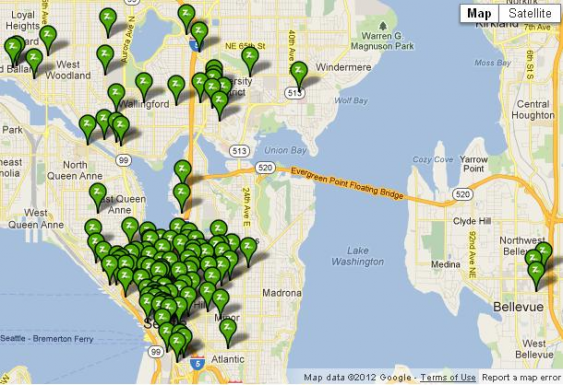
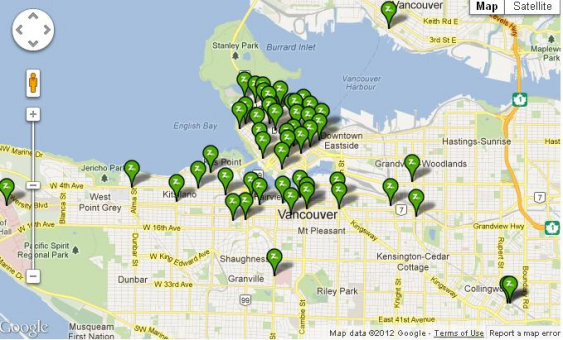
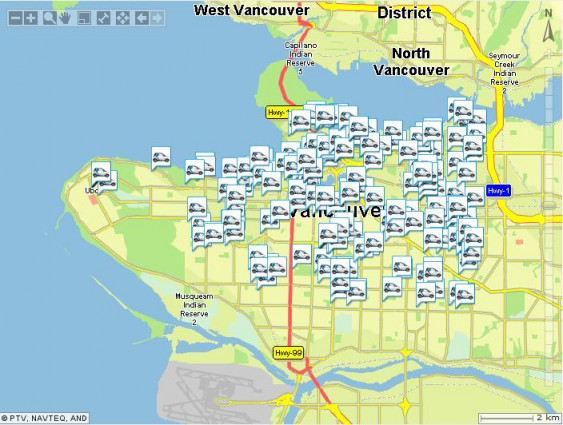
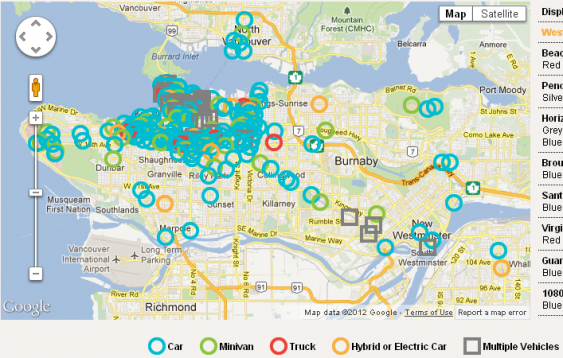
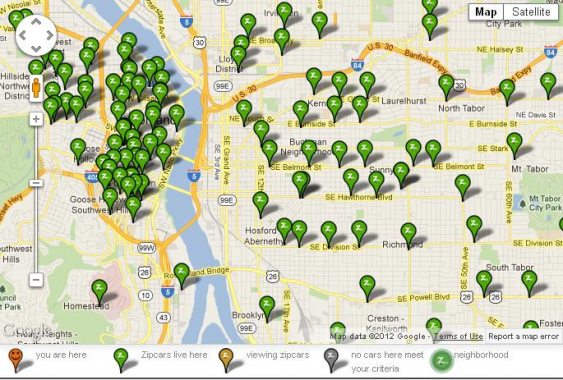
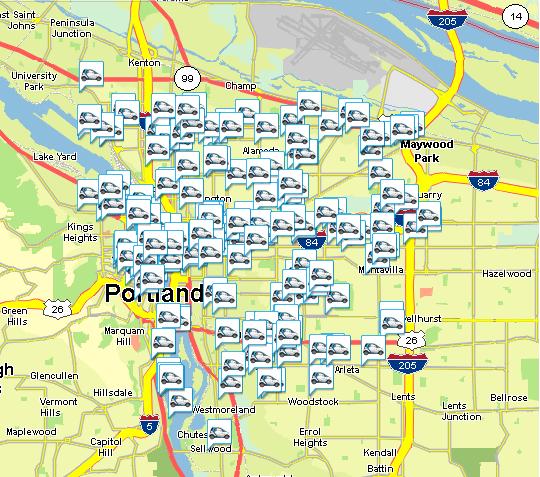
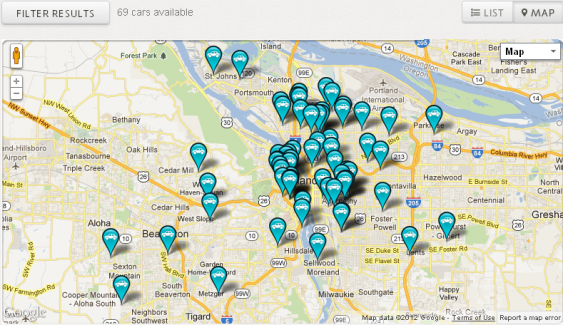

Comments are closed.